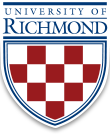
From the Directors
Full Participation: An Inclusive Approach to Civic Engagement
For several years, Bonner Center for Civic Engagement (CCE) staff members have been using the lens of “full participation” as a way to understand and deepen the links between equity and inclusion and civic engagement. We first encountered this idea through the Imagining America (IA) network, a consortium of colleges and universities to which the University of Richmond belongs. IA aims to catalyze change in campus practices, structures, and policies so that artists and scholars can thrive and contribute to community action and revitalization.
As defined by Susan Sturm, George M. Jaffin Professor of Law and Social Responsibility and the founding director of the Center for Institutional and Social Change at Columbia Law School, full participation is an “affirmative value focused on creating institutions that enable people, whatever their identity, background, or institutional position, to thrive, realize their capabilities, engage meaningfully in institutional life, and contribute to the flourishing of others” (Sturm et al., 2011).
Working as a team, the CCE staff explored this value from the perspective of our work in civic engagement and redefined it as one of the CCE’s four core values: “We value FULL PARTICIPATION as an inclusive approach that seeks out and considers diverse perspectives, recognizes participants as whole people, and invites individuals to contribute meaningfully.”
National research has long showed a critical link between civic engagement and diversity. At the CCE we have seen these trends as well. Overall, the CCE’s participation rates across our programming continue to amplify the diversity of the UR student body; for example, students identifying as Hispanic/Latino, Asian, Black/African American, non-U.S. citizens, or the first in their family to attend college all participated with the CCE at higher rates in 2014-15 than did the UR population at large. This has been a consistent trend since we began tracking demographic characteristics of students engaged in the CCE’s orbit in 2011-12.
But aiming for the standard of full participation—in which we seek to create ways for all individuals to “contribute meaningfully”—means that we want to do much more than count a diverse and inclusive range of participants as present. We are much more interested in understanding the ways that civic engagement helps all students thrive and deepen their learning while in college. At the CCE, the full-participation approach has prompted us to ask and try to answer complex questions: How do we prepare and support students to think through issues of difference, privilege, and identity in our advising, orientations, educational programs, and other touch points with students? Do our orientations and literature fully represent the many assets in the communities where we partner? How do we encourage students to connect what they are learning in courses with their own identities and with their sense of themselves as civic actors?
These are not easy questions to answer, but we aim to keep them consistently in view as we measure student learning, evaluate our current network of community partnerships, and work with faculty to support transformative experiential learning that is integrated into the fabric of the curriculum.
Sturm, S., Eatman, T., Saltmarsh, J., and Bush, A. "Full Participation: Building the Architecture for Diversity and Engagement in Higher Education,” http://imaginingamerica.org/wp-content/uploads/2015/09/fullparticipation.pdf. 2011, Web.
Dr. Amy Howard, Assistant Vice President of Community Inititatives and the Bonner Center for Civic Engagement
Dr. Sylvia Gale, Director of the Bonner Center for Civic Engagement


